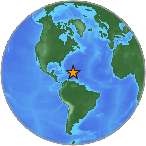PROTECT YOUR DNA WITH QUANTUM TECHNOLOGY
Orgo-Life the new way to the future Advertising by AdpathwayRenewable energy is outstripping nuclear power, as the number of nuclear reactors operating around the world continues to slide, a new report says.
The study, Nuclear power’s global stagnation and decline’, is published by the EnergyScience Coalition, an independent non-governmental organisation. It is authored by academics from the University of Melbourne and the Nuclear Consulting Group (NCG).
Its findings show that, despite claims to the contrary, the global nuclear power industry is “stagnating rather than growing”.
The aim of the study is to show that Australia’s push towards nuclear power is not worth the investment, and it cannot be deployed in time to support Australia’s energy transition targets.
Co-author Jim Green, a national nuclear campaigner and member of the NCG, told Associated Press (AP): “This report provides a factual rebuttal to the pro-nuclear disinformation campaign currently under way in Australia.
“There has been zero growth in nuclear power over the past 20 years and the number of countries operating reactors is the same as it was in the late 1990s.”
The study finds that in 2002 the number of operating nuclear power plants worldwide stood at 438. In 2024, this number had shrunk to 411.
In 2024, global nuclear power capacity was stagnant at 371GW.
Nuclear reactors generated just 9.15% of the world's energy in 2024, down from 9.2% a year earlier, and barely half its peak of 17.5% in 1996.
The study states that there has been no growth over the past 20 years and very little growth in the decade before that (less than 1% per year).
In comparison, according to data from the International Energy Agency (IEA), renewable energy sources added 666GW to in 2024.
Based on the IEA’s data, renewables capacity growth dwarfed nuclear growth by a factor of 155 last year.
The study argues there is no truth to the claimed nuclear renaissance as countries are not falling over themselves to install the technology.
The study states: “There is no credible reason to believe that the current claims of a nuclear ‘renaissance’ are likely to prove to have any more reality than the essentially never arriving ‘renaissance’ of the late 2000s.”
Findings show that while nuclear reactors were being built in 13 countries, only three are nuclear power newcomer countries: Egypt, Bangladesh and Turkey.
But the study says that these three projects are all heavily funded by the Russian state. It also points out that the only other country building abroad is France, with two reactors under construction in the UK fraught with rising costs. For instance, the Hinkley Point C reactor is expected to go £28bn over budget and be delayed until 2031.
Four countries had phased out nuclear power generation, including Italy and Germany, with a further three planning to phase it out, including Switzerland and Spain.
Professor Jim Falk, co-author at the University of Melbourne, told AP: “Reactor construction projects in countries with vast expertise and experience, such as France, the US and the UK, have run literally tens of billions of dollars over budget, and construction schedules have slipped by many years.
“Since those countries have failed to build reactors on time and on budget, it would be naive to believe that a nuclear newcomer country such as Australia could do it.”
Last month, Prime Minister Keir Starmer unveiled plans to build a new suite of nuclear power plants in the UK, alongside a revamping of the planning rules to prevent local interests from derailing nationally significant projects.






















 English (US) ·
English (US) ·  French (CA) ·
French (CA) ·